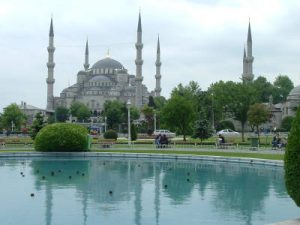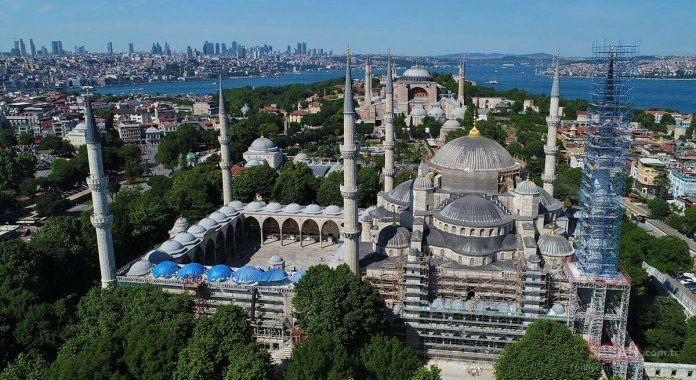Islamic holy month of Ramadan begins on Monday, August 1st, marking the onset of the 30-day fasting and spiritual observance. Ramadan is the most venerated month for the Muslims; according to the Traditions, Prophet Muhammed received his first revelation sent down by God through Archangel Gabriel in this month. To celebrate this divine experience He enjoined the devout during Ramadan to turn to their inner world, concentrate on soul searching and reflect upon their relationship with God.
 Fasting is the most effective way to go through this exercise as it is a covenant with God undertaken willingly despite the hardship and sacrifice involved. It is not an attempt to enforce religious asceticism upon the believers, but an effort to unite the community through a common journey to self maturity. That way, we tame our human excesses, put in perspective our attachment to the material world, and rediscover the divine that dwells in us. Throughout this month the believers are required to forgo the worldly pleasures in self-denial. Each day, from dawn to dusk the pious must abstain from eating any food, drinking any liquid, refrain from smoking and carnal distractions. As Islam forbids undue burden on the believers they can conduct their normal lives from dusk to dawn.
Fasting is the most effective way to go through this exercise as it is a covenant with God undertaken willingly despite the hardship and sacrifice involved. It is not an attempt to enforce religious asceticism upon the believers, but an effort to unite the community through a common journey to self maturity. That way, we tame our human excesses, put in perspective our attachment to the material world, and rediscover the divine that dwells in us. Throughout this month the believers are required to forgo the worldly pleasures in self-denial. Each day, from dawn to dusk the pious must abstain from eating any food, drinking any liquid, refrain from smoking and carnal distractions. As Islam forbids undue burden on the believers they can conduct their normal lives from dusk to dawn.
The Christianity and Judaism have similar practices, Lent, for instance, commemorates the fasting of Jesus in the wilderness and it is a time of penance and abstinence to cleanse the body of impurities; and a time for atoning for sins. There are, however, wide variations in Lenten practices such as cutting down on food, skipping a meal, refraining from meat on certain days; whereas Ramadan is more uniform, and a community spirit comes through forcefully.
The Yom Kippur in Jewish tradition is also a day of atonement. It is just one day of fasting regimen and the notion of submission and forgiveness are similar to Ramadan.
Ramadan is a good opportunity for soul searching and reflection. During fasting, one becomes more aware of the desire of the flesh, and tests his or her own resolve to overcome it. In the process, the devout gains inner strength and can relate better to the plight of the
fellow human beings who are less fortunate. Fasting teaches us righteousness and self-discipline. The believers get a psychological uplift knowing they are in control of their desire. Fasting makes people honest, compassionate, humble and charitable.
Ramadan is also an opportune time to strengthen our physical and moral stamina, to develop solidarity based on empathy for those who are in the same journey of trial.
Adults can set a good example for moral rectitude, and pass along the time-tested values to future generations to safeguard them from spiritual emptiness, lack of goals, and a sense of meaninglessness about life.
Ramadan has also a vibrant social aspect; the rich feel the pangs of hunger familiar to the poor, inducing sympathy in the hearts of the rich. It is also a time of joy and merriment. The faithful is given to peace and forgiveness. It is a time for being extra generous to those in need, to care for old and to visit the sick. The believers express brotherly love more willingly and demonstrate a readiness to understand and accept others without being judgmental. Fasting makes people grow spiritually, emotionally and morally. It is amazing how much devout enrich themselves in a month’s time.
Pennington, NJ

